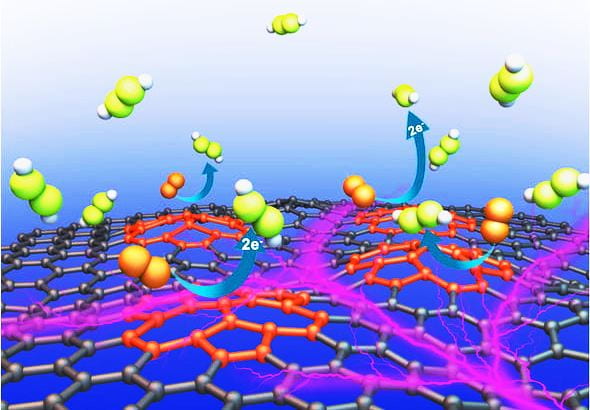Plasma processing modifies carbon black powder to catalyze valuable chemical
 Rice University researchers have created a “defective” catalyst that simplifies the generation of hydrogen peroxide from oxygen.
Rice University researchers have created a “defective” catalyst that simplifies the generation of hydrogen peroxide from oxygen.
Rice scientists treated metal-free carbon black, the inexpensive, powdered product of petroleum production, with oxygen plasma. The process introduces defects and oxygen-containing groups into the structure of the carbon particles, exposing more surface area for interactions.
When used as a catalyst, the defective particles known as CB-Plasma reduce oxygen to hydrogen peroxide with 100% Faradaic efficiency, a measure of charge transfer in electrochemical reactions. The process shows promise to replace the complex anthraquinone-based production method that requires expensive catalysts and generates toxic organic byproducts and large amounts of wastewater, according to the researchers.
The research by Rice chemist James Tour and materials theorist Boris Yakobson appears in the American Chemical Society journal ACS Catalysis.
– See more at Rice News


